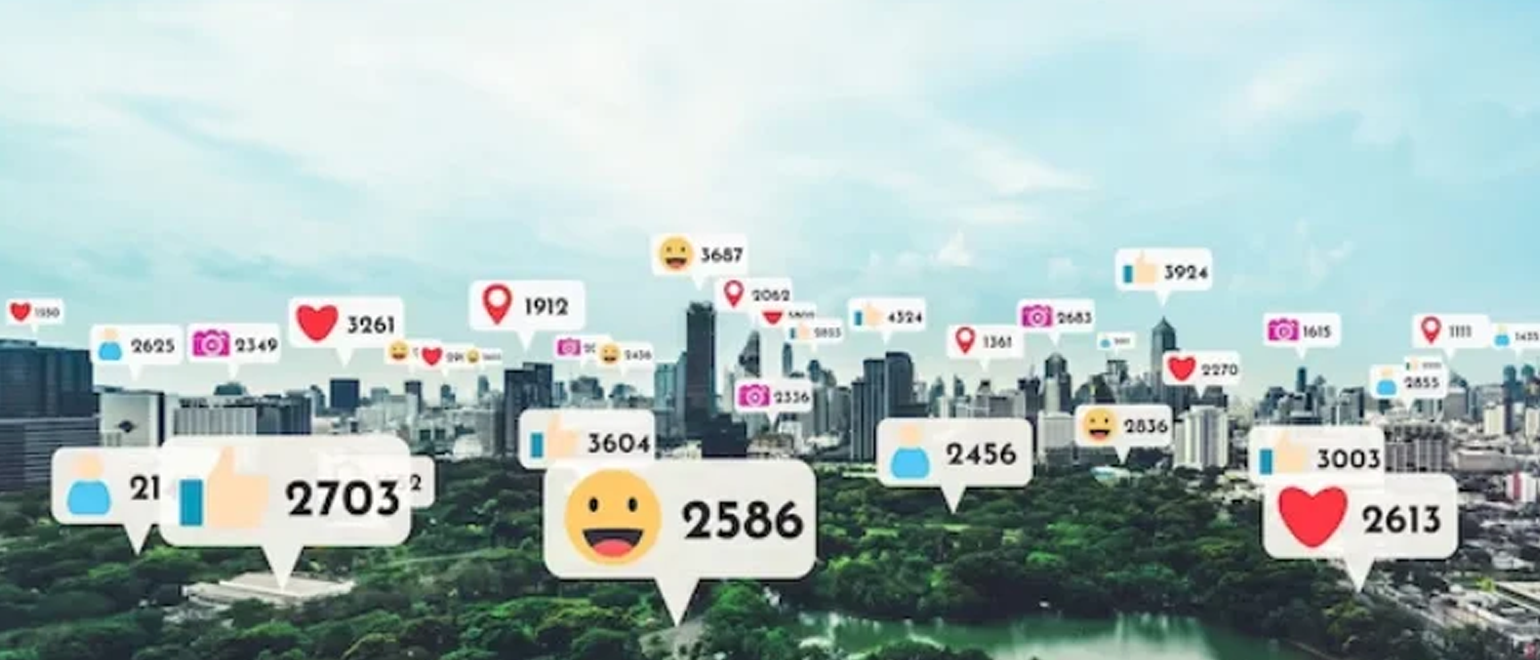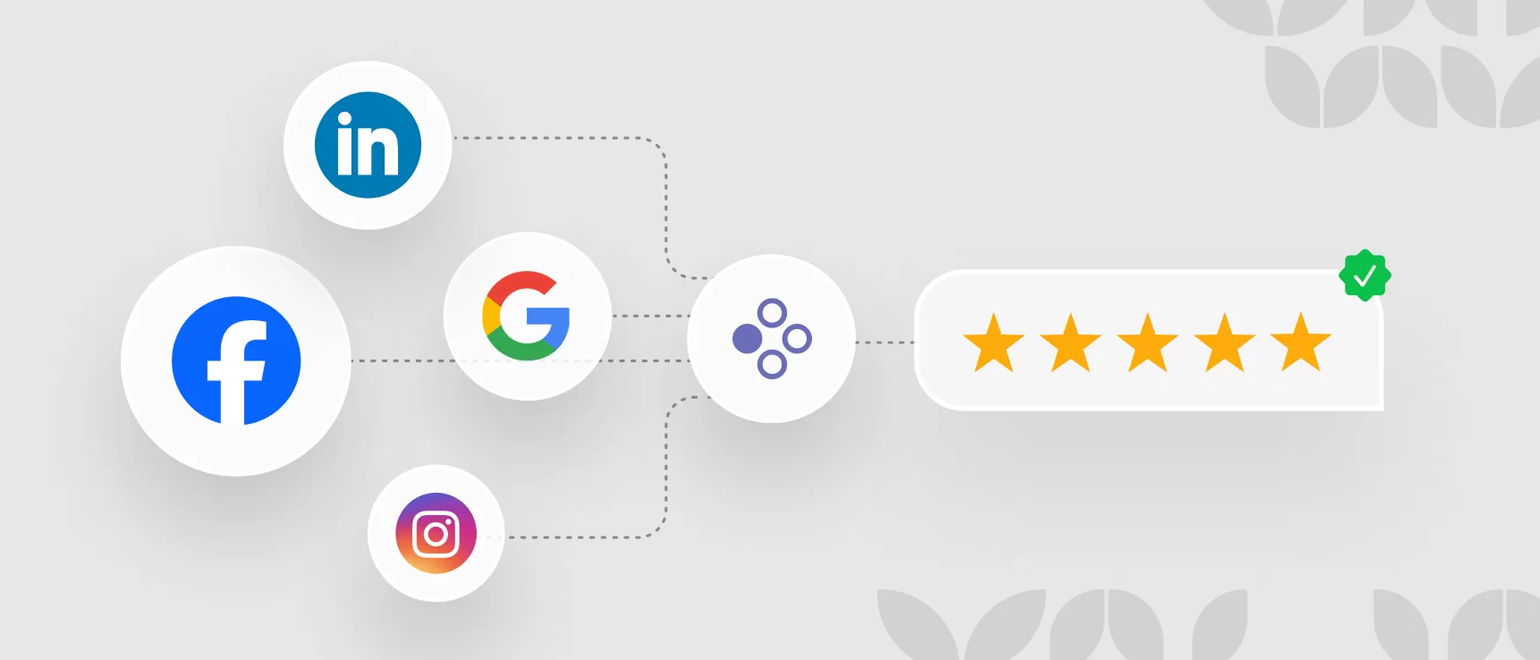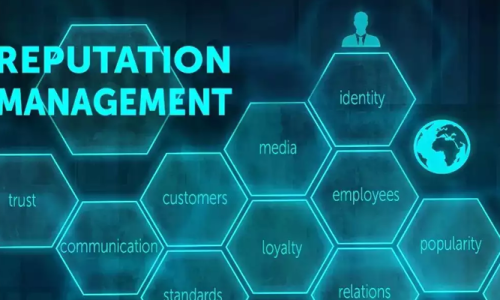
In the age of digital dominance, businesses are presented with a vast array of online tools and platforms to connect with their audience. Two such tools, often lumped together but serving distinct purposes, are social media and reputation management. While both are essential components of a comprehensive digital marketing strategy, they serve different stages of the customer journey. Social media primarily focuses on building awareness, whereas reputation management plays a pivotal role in influencing customers who are on the brink of making a purchase decision. In this blog, we will delve into the differences between these two crucial aspects of online marketing and emphasize the importance of allocating resources to both.
The Social Media Landscape: Building Awareness

Social media platforms, such as Facebook, Twitter, Instagram, and LinkedIn, have transformed the way businesses interact with their target audience. They offer an excellent platform for creating brand awareness and engaging with potential customers. Here’s why social media is primarily about building awareness:
- Reach and Visibility: Social media platforms allow businesses to reach a massive audience quickly. Posting content, running ads, and using relevant hashtags can increase your brand’s visibility among potential customers.
- Engagement and Community Building: Social media fosters engagement with your audience through likes, shares, comments, and direct messaging. Building an active community around your brand helps create a positive image and trust.
- Content Dissemination: It’s the ideal space for sharing informative and engaging content. Whether it’s blog posts, videos, infographics, or product updates, social media amplifies your message.
- Targeted Advertising: Social media platforms offer advanced targeting options, allowing you to reach specific demographics, interests, and behaviors, which is crucial for building awareness among your ideal audience.
- Data and Analytics: Social media provides valuable insights into your audience’s preferences and behaviors, enabling you to refine your messaging and strategy.
However, the common mistake many businesses make is overemphasizing social media while neglecting reputation management.
The Role of Reputation Management: Influencing Purchase Decisions

Reputation management focuses on shaping and maintaining your brand’s image in the eyes of potential customers. It plays a critical role in influencing the customer who is at the cusp of making a purchase decision. Here’s why reputation management matters:
- Trust and Credibility: Positive online reviews, testimonials, and a stellar reputation contribute to trust and credibility. Customers are more likely to choose a business with a solid reputation.
- Customer Journey Alignment: Reputation management aligns with the later stages of the customer journey when consumers are actively researching products or services and comparing options.
- Reviews and Testimonials: Online reviews and testimonials have a profound impact on purchase decisions. Potential customers often seek feedback from peers before making a choice.
- Crisis Management: Reputation management also involves handling negative reviews or addressing customer complaints promptly. Effective crisis management can mitigate damage to your brand’s image.
- SEO Benefits: A positive online reputation can improve your search engine rankings, making it easier for potential customers to find you when they’re actively searching for products or services like yours.
Balancing Social Media and Reputation Management

While social media is undoubtedly essential for building brand awareness, reputation management should not be underestimated. Many companies allocate significant resources to social media marketing, but they often disregard putting similar efforts and resources into reputation and review management.
Here are some tips for finding the right balance:
- Prioritize Reputation Management: Allocate resources to actively manage your online reputation, including monitoring reviews and addressing customer feedback.
- Consistent Brand Messaging: Ensure that your brand messaging and tone are consistent across social media and review platforms, creating a coherent and trustworthy image.
- Monitor and Analyze: Continuously monitor online reviews and social media engagement metrics to assess your strategy’s effectiveness and make necessary adjustments.
- Invest in Customer Service: Exceptional customer service can lead to positive reviews and social media mentions. Train your team to provide excellent service at every touchpoint.
In conclusion, while social media is a powerful tool for building awareness, reputation management is equally important, especially when it comes to influencing customers who are ready to make a purchase. To maximize your digital marketing efforts, it’s crucial to strike a balance between the two, recognizing their distinct roles in the customer journey. By doing so, you can build a strong brand presence and guide potential customers from awareness to conversion.




